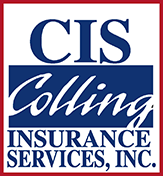You may know that the type of materials your home is made of can affect your insurance premiums, but did you know that your roof also makes a difference in your rates? The type of roof you choose for your home can determine how likely you are to need to file a claim to replace or repair it in the coming years, because some types of roofing materials are much more durable than others.
Impact-Resistant Roofing
An impact-resistant roof is one that is better suited for withstanding impact from falling debris and extreme weather conditions than other types of roofing materials. Metal roofing is the preferred roof of insurers, and installing a metal roof on your own home with likely reduce your insurance premiums significantly. However, metal roofing is also the most expensive roofing material and may not be feasible for your budget – especially if you do not plan to live in your home for a long period of time. In that case, you may want to opt for a class four asphalt shingle, which is sturdier than other shingles, but not as expensive as metal roofing.
Ultimately, the type of roofing you choose for your home is up to you. Although there are definite benefits to choosing impact-resistant materials, choosing a traditional composite material will not make your premiums skyrocket – you just may not qualify for certain discounts.




 Email an Agent
Email an Agent


 Click to Call
Click to Call Get Directions
Get Directions